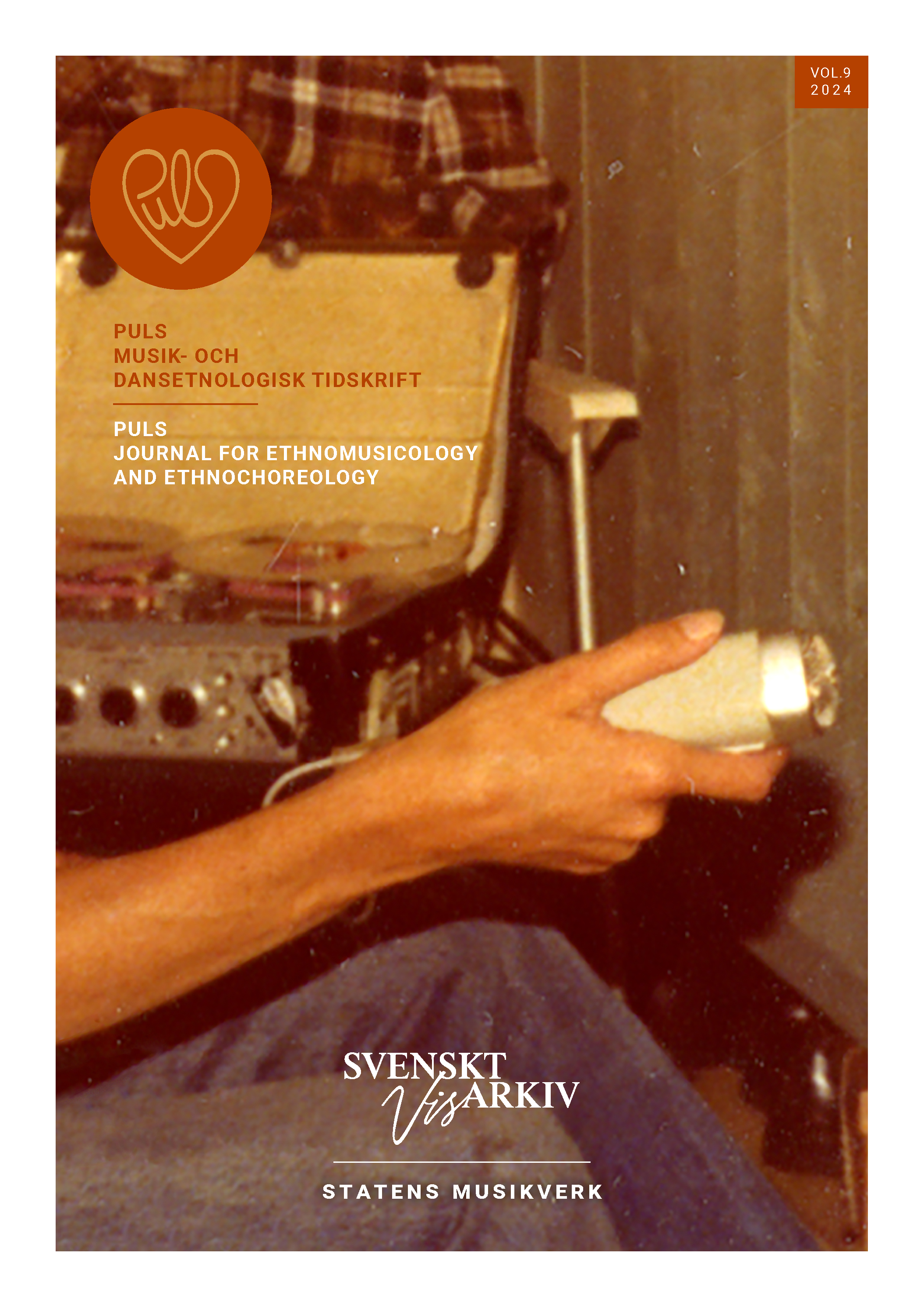Tarab and transtopias. A postmigrant analysis of Arab music making and teaching in southern Sweden
A postmigrant analysis of Arab music making and teaching in southern Sweden
DOI:
https://doi.org/10.62779/puls.9.2024.23740Keywords:
Arab musicians , Arab music, tarab , music making, mobility , cultural change, postmigration, transtopia, SwedenAbstract
.




